Dragonheart Core - Chapter 33: War Beasts
Chapter 33: War Beasts
The snapping turtle slumped to the ground, very, very dead. To be precise, half of it slumped to the ground—its head was still tightly gripped in the kobold’s bleeding claws.
I couldn’t peer into her mind anymore, her having sworn to a different lord, but I could read Seros’. He was a bundle of awkwardness, not really knowing how to deal with his new sworn underling but being guided by instincts anyway, and choosing something in his own, reptilian language.
Rihsu.
I didn’t know what it meant, but by the way she stood up even straighter past the scarlet bleeding over her scales and the actively-spurting turtle head in her claws, I imagined she liked it.
Precocious little beast. I pressed soothing mana over her, stitching scales back together and pressing skin back together. She nodded her head to Seros. As if he was the one doing it.
Fantastic.
As she went off with Seros, I poked back around the turtle’s corpse. It had grown in its time in my halls, ballooning out until its shell was nearly seven feet across and four off the ground, heavily ridged and a deep, emerald green past the mosses growing off its back like threadbare wings. Its jaws were built to snap mountains in half.
All in all, precisely something I would want in my halls.
I dissolved away at its outer edges, shredding through its mana and soul; it presented a unique view of my dungeon, being present for attacks and growth but without my voice overhead instructing my creatures on what to do. It had mapped out some areas of the Drowned Forest I hadn’t considered as worthwhile, so I’d be changing that. Beyond that, it was a slow moving ambush predator, content both on land or in water, and it damn well knew it was invulnerable. An armourback sturgeon but with fangs. Glorious little addition.
Lichenridge Turtle (Uncommon)
Slow and lumbering, from birth it grows various mosses and lichens upon its back to disguise itself as it hunts. The plants are fed as it feeds and breathes as it breathes, eventually growing large enough to completely hide it.
Huh. That would explain, at least, how its mosses had survived switching from terrestrial and aquatic life, and that did clear out another of my worries; I could, as always, only collect schemas of dead things, and while the turtle had been politely ripped in half, the mosses over its back were still green and fresh. Hopefully without being fed by it, they would die soon. I could poke my way through around… three species there, including the billowing moss. Plenty of lovely elements for my floors.
Including the thoughts I’d been having for my fourth.
Today was the day I was starting it, I knew—while I didn’t exactly have a lot of mana, I needed to move my core. No one had attacked in the around four days since the attack, but I couldn’t count on that forever. I needed to prepare for invaders like they were actively knocking on my many front doors.
And, given as the most pressing of those front doors was all the way on my third floor, I needed a very specific anti-merrow floor.
My first thought had been fire, of course. Magma pools and dry heat and sand dunes, all beautifully combined in some combination to stop any merrow from so much as thinking of heading in that direction. Would’ve been lovely, really.
But I was somewhat stopped by the fact that no, I not only didn’t have access to any fire-mana I could use to create that environment, but I also had no creatures to survive there. Great. Nearly all of my creatures were if not semi-aquatic, at least enjoying a more damp environment. Only the kobolds would have a chance of surviving there.
Not exactly the massive threat for a creature heading that way.
Next I thought of heights, of a thin, rickety walkway made near impossible if you were dragging yourself across the ground with a tail to unbalance you, with a profoundly fatal fall right over the edge filled with all manners of nastly pointed spears. Flying creatures overhead, battling and buffering and doing their damnedest to drag invaders off the side. A glorious idea, exciting enough I had already started to plan it, when once again I fell short.
The only flying creature I had was the bat, who, once again, I didn’t have yet. And it wasn’t like the rest of my creatures were likely to get an aerial evolution, at least none that I could see. And the floor would have the same problem as my last few—a straight line from entrance to exit. The kind of place where all someone had to be was moderately strong enough to brute force their way through my carefully built little traps and then they’d succeed at killing me. Not exactly what I was looking for.
So there I’d been, trapped in a circle of endless ideas and even more endless reasons why they wouldn’t work, when I happened to have gotten Rhoborh as a patron. The blessing of the symbiosis.
Namely, the presence of plants.
No surprise it’d ended up being what I settled on. When I’d started my journey, I’d had only two plants and I’d been fine with it, far too focused on creatures who could rip and kill and snatch. But now, with the vampiric mangroves and my ever-growing collection of flora, they were appealing to me more and more. Now I could find a way to put them to use.
The overall concept was simple, really. Answers to all of my problems.
I couldn’t have the merrow be able to come through—so it was a dry environment, admittedly humid but with no water except for small drinking ponds scattered throughout. I’d line the ground in plenty of plants with hidden thorns to rip them to shreds if they tried to just drag themselves through.
I couldn’t have it be a straight line—so I’d make it a maze, full of endlessly twisting paths with no correct way and my core room hidden at the end of an impossible task.
I couldn’t have those stronger than me able to beat it easily—so it’d be full of threats not feasible to defeat with strength alone, like traps and poisons and hypnotic abilities. The horned serpent would run rampant here.
In short, I had grown so overwhelmingly proud of my vampiric mangroves that I was building an entire floor modeled after their roots. Identical tunnels, layered in algae and moss, snaking through the mountain in patterns impossible to map and built to struggle in. Full of creatures who were there to lure invaders into going the wrong route, leading them farther and farther away from the end, until they eventually succumbed. Perhaps some wandering threat, calling out so that invaders could constantly hear it coming but would never know from where—or a sort of mindless army, throwing themselves in endless waves as the invaders grew more and more exhausted fighting them off.
I shook myself. Not yet—I still had to build the bloody tunnels, and fill them with a suitable environment. I didn’t know which plant would take the center stage, though. Billowing moss didn’t quite match what I was searching for, given its more carefree, waving appearance, and the mushrooms were too fragile and spindly to really drench the tunnels in an identical cover.
Algae, then. Who knew? Maybe I’d even get an evolution out of the mix.
So I gathered my mana around me, all the scraps from regeneration and my dungeonborn creatures killing invaders, and set out to the third floor. Once the two new plants died I would go about creating lichenridge turtles to populate the second floor with, just so they would have their normal spread of plants available to disguise themselves with, and I’d also go around placing the flora—but later.
For now, I needed to dig.
–
Akkyst. Weak, stupid, useless.
Worse of all, his apparent new name.
The goblin-horde filled one third of the mountain, endless and sprawling, but the vast majority was tucked inside one cavern with a ceiling so high overhead he couldn’t see anything but shadow. Houses made of crumbling stone walls and rotten wood teetered higher and higher up the walls, goblins shouting and cackling to each other as they swarmed over their home, the war-bellows of training soldiers down on the stone floor. Quartz-lights, he’d heard them called, lit everything with a hazy, flickering glow, the raw stench of meat well past due and blood filled the air, the houses creaking and groaning under weight they weren’t meant to hold.
And, behind it all, the war animals.
Dozens of them, most mountain residents kidnapped in some way or another to join the goblins; they lay cramped and disheveled in dens dug straight into the stone, dust and grime covering fur and scales and skin. The goblins didn’t care for their war beasts; if one died, there were hundreds more in the mountain ready to take their place. They weren’t worth taking care of.
Akkyst had been there for under a week and he hated it.
He peered cautiously past the wooden bars that made up his prison home; a legion of goblins trained under barked command, jabbing spears at invisible enemies. It wasn’t invaders—humans, he supposed, was their actual names—they were fighting, but other goblins. Three hordes lived within this mountain and they fought constantly. One was the… miners, he was pretty sure, and another the mages; this horde was the warriors, fighting with brawn and brawn alone.
Their brawn and brawn alone included whatever war beasts they picked up in the mountain.
There was nothing to do but get hurt or listen, and Akkyst found he enjoyed listening more than the alternative. His species was intelligent, something deep within him said, and that flicker of archaic knowledge and power had let him try to learn the goblin’s language. Not enough where he could fully know everything being said around him, but enough that the scraps he had been born with had evolved into true understanding. It was his only defense.
That made it hurt all the more whenever he thought of where he had gotten that slight knowledge of all languages, the basis for his understanding—back at the gentle hills of his previous life. With the mushrooms and the fresh water and no creature foolish enough to challenge him.
He wanted it back. He wanted to go back so badly it hurt.
But he couldn’t, and neither could the creatures trapped in there with him.
Just three of them, curled up in one of the dens; there had been seven, but there had been a patrol out near goblin-mage territory, and its loss had spurred a responding attack. Akkyst and two others had been deemed too weak, too small to stage a proper assault and left behind.
And now they were the only ones left.
One was a narrow, slinking beast, covered in fur like him; although hers was a pale green-grey, with a tail tipped in shining blue. But that had been when she was first dragged in, four days ago—now she was all grey and covered in dust, her long claws dulled and ears pressed flat. She had no name for her species, calling herself only one of the old hunters; the goblins called her a stalking jaguar.
The other was even smaller, a slump of iron-red feathers and gold talons. He had four wings, what he called his strange, misshapen limbs, and a jagged mouth longer than Akkyst’s claws. Anger burned fiercely in his black eyes. He called himself a sharp-wing; they called him a bladehawk.
But as strong as they could have been, they were nothing to the lumbering elephants with metallic armour growing out of their skin, or the rhinos with lightning crackling up their horns, or the salamanders with smoke roiling out of their lungs.
And so they stayed in their den, waiting to be sent out on a death mission; war beasts earned their food by killing opposing goblins. He was already starving.
And unfortunately, looking by the goblin sauntering over to their den with a spear gripped loosely in her clawed hand, he might just get his wish.

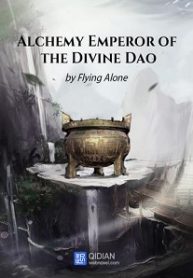
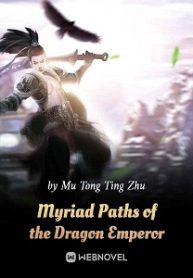
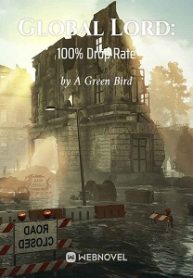

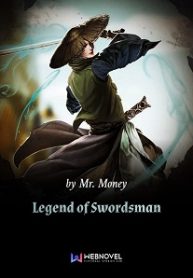


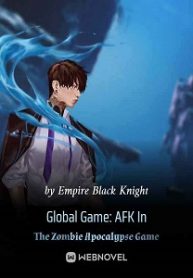



-1582-75x106.jpg)
